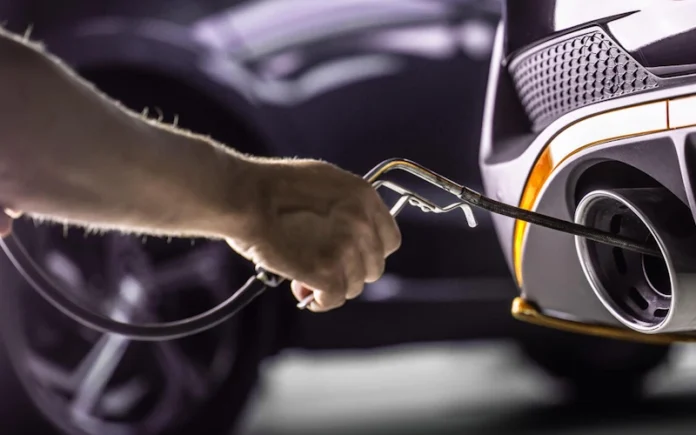Table of Contents:
- Introduction: The Importance of Vehicle Emission Systems
- What are Emission Repairs, and Why Do They Matter?
- Common Issues in Vehicle Emission Systems
- The Process of Diagnosing and Fixing Emission Problems
- The Benefits of Regular Emission Maintenance
- How Emission Repairs Contribute to a Better Environment
- Technological Advancements in Emission Control
- How to Choose a Reliable Emission Repair Service
Introduction: The Importance of Vehicle Emission Systems
Emission systems are crucial for modern vehicles to minimize harmful gases and protect against air pollution. They comply with regulations and make the environment cleaner by converting toxic gases like carbon monoxide into less dangerous emissions. The Environmental Protection Agency states that modern catalytic converters can decrease hydrocarbons and carbon monoxide emissions by over 90%. The focus on environmental conservation has increased, making vehicle emission systems essential for ensuring optimal performance and safeguarding air quality. Whether you’re looking to find emissions repair Lynnwood professionals or wish to grasp the broader implications of emission control, this journey through the significance of emission repairs aims to illuminate the path to cleaner air.
Regular vehicle maintenance is crucial for reducing air pollution caused by harmful gases like nitrogen oxides and particulate matter. Addressing and performing emission repairs can help curb these dangerous pollutants and enhance vehicle lifespan. This article emphasizes the importance of emission repairs in promoting a healthier planet.
What are Emission Repairs, and Why Do They Matter?
Emission repairs refer to maintaining and fixing parts within a vehicle’s emission system to ensure they function correctly. These repairs are vital for complying with local and federal emission standards, enhancing vehicle functionality, and preserving the environment. Regular maintenance of emission systems prevents unwanted pollutants from contaminating the air, thus playing a crucial role in addressing climate change.
Common Issues in Vehicle Emission Systems
Among the most prevalent problems impacting vehicle emission systems are oxygen sensor degradation, catalytic converter failure, and exhaust leaks. These issues not only increase a car’s emissions but can also lead to a decline in performance and fuel efficiency. According to reports, age, and fuel quality can often cause catalytic converters to malfunction, highlighting the significance of routine checks and prompt repairs.
The Process of Diagnosing and Fixing Emission Problems
During emission repairs, mechanics employ diagnostic tools to assess and identify issues within the emission system. Technicians evaluate components such as oxygen sensors, catalytic converters, and the engine control module for error codes. A precise diagnosis is imperative to ensure effective repairs, prevent further emissions, and maintain vehicle efficiency. These guidelines align with the standards provided by the Emission Diagnostics protocols outlined by the EPA, affirming the significance of accurate and regular diagnostics.
The Benefits of Regular Emission Maintenance
Routine emission maintenance offers numerous advantages. The vehicle’s benefits range from improved fuel economy to enhanced performance and extended lifespan. On a broader scale, continuous upkeep of emission systems contributes significantly to emissions reduction, playing a crucial part in environmental conservation. Research also emphasizes that a properly functioning emission system can save fuel costs over time, making regular maintenance economically favorable for vehicle owners.
How Emission Repairs Contribute to a Better Environment
Vehicle emissions significantly affect global air quality, and repairing emission systems helps reduce this burden. By ensuring that vehicles emit minimal pollutants, we positively influence environmental health. Compliance with emission standards protects the environment and is essential for public health, minimizing respiratory ailments and other pollution-induced conditions. Many countries implement strict regulations to uphold emission standards, exemplifying the global commitment to improving air quality.
Technological Advancements in Emission Control
The continued evolution of emission control technologies is vital for further reducing vehicle pollution. Recent advancements have focused on developing systems that cut emissions significantly and improve overall vehicle efficiency. Innovations like advanced catalytic converters and hybrid systems are setting new standards in emission control. Articles on Innovation in Emission Technology provide insight into how these technological strides are reshaping the landscape of vehicle emissions, creating a more sustainable future for all.
How to Choose a Reliable Emission Repair Service
Selecting a credible emission repair service involves several key considerations. A reputable service should possess relevant certifications such as ASE (Automotive Service Excellence) and use the latest diagnostic tools. Additionally, reading customer evaluations might reveal consumer happiness and service quality information. Securing a trustworthy emission repair service promotes a cleaner and greener future by ensuring that your vehicle operates at its peak efficiency and conforms with environmental standards.

